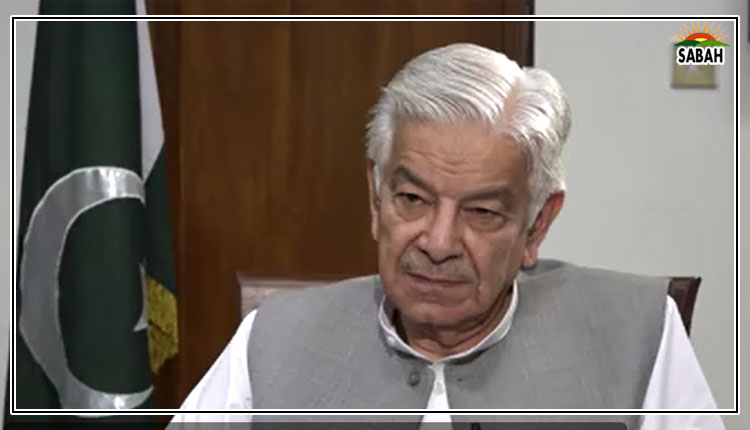China’s new ‘Toolbox’ for security and sovereignty…Imtiaz Gul
In March this year, President Xi Jinping hit out at the string of sanctions the US and its European allies have been slapping on China. In a blunt tone like never before, Xi decried these measures as a means of all-around containment, encirclement and suppression of China, signaling a possibly harder stance against what he perceives as an effort by the United States to block Chinas rise. This speech apparently set the stage for the new Foreign Relations Law (passed on June 28) that has transformed Xis views into a law in a difficult geopolitical and challenging commercial environment.
The law is meant to guide and govern the countrys foreign policy a de facto TOOLBOX to handle issues related to external relations. It is designed to act as a deterrent to sanctions and is needed urgently to safeguard national sovereignty and security. It says Beijing has the right to take measures to counter and restrict actions that endanger the countrys sovereignty, security and development interests, violate international law or fundamental norms of international relations. It also authorises the State Council the countrys cabinet and the executive branches of government to come up with regulations and systems to apply the countermeasure on issues such as US-led export controls on advanced technology.
It calls on state agencies charged with executing Xis vision to strengthen interdepartmental coordination and cooperation to enforce the retaliatory measures. The State Council, which co-ordinates Chinas government ministries, is authorised to establish related working institutions.
As expected, the law drew criticism from US and European officials and experts, warning it will equip authorities with unprecedented powers to go after any person or organisation considered as a risk to national security.
The US State Department said the law will greatly expand the scope of what (Beijing) considers espionage activities.
Foreign businesses do not have clarity on what is officially considered a national secret, the European Chamber of Commerce in China wrote in response to questions on the law. Laws that are vaguely worded and broad in scope present compliance challenges, and can also result in discretionary implementation, which is not conducive to attracting foreign investment or rebuilding business confidence among the foreign business community in China, according to Bloomberg news agency.
But Beijing bigwigs insist on self-defense and preemption through such legislation. We should make full use of the Foreign Relations Law as a legal tool through legislative, law enforcement, judicial and other means to carry out our fight in response to acts of containment, interference, sanctions and destruction, wrote Wang Yi, the senior-most diplomacy adviser in Peoples Daily (June 29).
China is confronting a growing number of unpredictable factors and should continuously expand its legal toolbox for foreign struggles the law clearly opposes all hegemonism and power politics, and is against any unilateralism, protectionism and bullying acts towards China, Yi underlined.
Chinas Foreign Minister Qin Gang, a former ambassador to the United States, had also already hinted at harsher measures back in March.
The United States actually wants China not to fight back when hit or cursed, but this is impossible but if it takes a less confrontational stance toward Chinaif the U.S. doesnt step on the brakes but continues to speed up, no guardrail can stop the derailment, Qin had said.
The Beijing mood has been increasingly suspicious and blunter since the US CIA announced the establishment of a China-focused center in October 2021. CIA Director William J Burns had then characterised the new China Mission Center as an effort to further strengthen our collective work on the most important geopolitical threat we face in the 21st century, an increasingly adversarial Chinese government.
No surprise that China is reluctant in resuming high-level communication with American armed forces until Washington lifts sanctions on Chinese Defense Minister Li Shangfu. Beijing had also sanctioned individuals, including former US Secretary of State Michael Pompeo, in recent years, who have few, if any, ties to the Chinese economy.
Even Secretary of State Anthony Blinkens visit (June 20) could not help in softening respective positions or preventing the new legislation which is now the long-term self-defense mechanism for Beijing, which is both skeptical as well as apprehensive as the US-led Indo-Pacific strategy unfolds, drawing NATO, AUKUS, QUAD into ever closer anti-China cooperation.
Latest business deals and joint venture agreements between Indian and US firms, analysts argue, are also part of the Indo-Pacific strategy with the aim of relocating business from China and shifting future investments to India and its periphery a perfectly legitimate goal that every nation is entitled to pursue. Why should then safeguarding of own national interests by one nation be seen with skepticism by others? Why deploy brinkmanship instead of pursuing mutually beneficial means to protect national interest? Collaboration can be a much more effective tool for national development and international connectivity than a confrontationist approach that boxes nations into silos of individual or group interests.
Courtesy The Express Tribune












